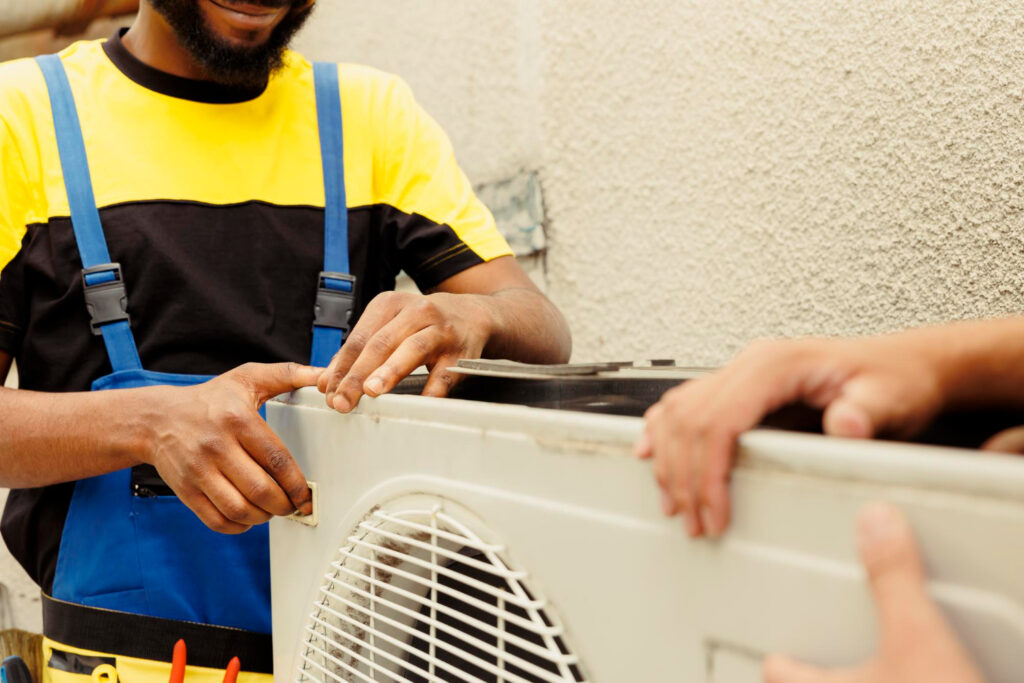Maintaining an efficient HVAC system is essential for ensuring comfort in your home. Over time, your system may show signs of wear and inefficiency, which can indicate that it’s time for a replacement. Understanding when to consider HVAC replacement can save you from costly repairs and high energy bills.
Signs Your HVAC System is Nearing the End of Its Lifespan
Identifying the signs that your HVAC system is nearing the end of its lifespan can help you make a timely decision about replacing it. One of the most common indicators is the age of the system. Most HVAC systems have a lifespan of about 10 to 15 years. If your system is approaching or has surpassed this age, it might be time to consider an HVAC replacement.
Another sign is decreased efficiency and performance. Older systems often struggle to maintain the desired temperature, resulting in inconsistent heating or cooling. If parts of your home are too hot or too cold despite regular HVAC maintenance, it could signify that your system is wearing out. Our professionals can assess the performance of your system and recommend whether a replacement is necessary.
Frequent breakdowns and the need for constant HVAC repair are also strong indicators. If you’re calling technicians more often to fix issues, the costs can add up quickly. Investing in a new HVAC installation may be more cost-effective in the long run. A newer system will offer better efficiency, reliability, and lower repair costs.
Rising Energy Bills: An Indicator of Inefficiency
A spike in your energy bills can be a clear sign that your HVAC system is no longer operating efficiently. An older or malfunctioning system requires more energy to maintain comfortable temperatures in your home. If you notice a steady increase in your utility bills, it might be time to consider an HVAC replacement.
Several factors can cause increased energy consumption. Worn-out components, such as the blower motor or compressor, can reduce the system’s efficiency. Additionally, older systems may lack the advanced technology that modern HVAC systems use to optimize energy consumption. Our technicians can evaluate your current system and help you determine if a new, more efficient HVAC installation is the best solution.
Addressing inefficiency through an HVAC replacement can lead to significant savings on your energy bills. A newer system will operate more effectively, using less energy to achieve the desired temperature. This not only improves comfort but also reduces your environmental footprint. Regular HVAC service by our professionals can also help maintain the efficiency of your new system, ensuring it continues to perform at its best.
Frequent and Costly Repairs: When to Stop Fixing and Start Replacing
Constant HVAC repairs can be a sign that your system is nearing the end of its usable life. If you find yourself frequently contacting our professionals for HVAC repair, it might be time to consider a complete HVAC replacement. When repair costs start to add up and exceed a significant portion of the cost of a new system, replacing the unit becomes the more cost-effective solution.
Another factor to consider is the frequency of breakdowns. Even if individual repairs are relatively inexpensive, the downtime and inconvenience of an unreliable system can impact your comfort and peace of mind. Our technicians can assess the overall condition of your HVAC system and provide an estimate of remaining useful life. If your system needs repairs more than once or twice a year, replacement might be the better option.
Routine HVAC maintenance can help extend the life of your system, but there comes a point when it is more practical and economical to upgrade. Our team will guide you through the decision-making process, helping you determine whether continued repairs or a new HVAC installation is the best path forward for your home.
Benefits of Upgrading to a Modern HVAC System
Upgrading to a modern HVAC system offers numerous advantages. One of the most significant benefits is increased energy efficiency. Modern systems are designed with the latest technology to consume less energy while providing better heating and cooling performance. This can result in noticeable savings on your energy bills and a lower environmental impact.
Another benefit is improved indoor air quality. New HVAC systems come equipped with advanced filtration and humidity control features, ensuring that the air circulating in your home is clean and comfortable. Our professionals can help you choose a system that meets your specific needs and ensures optimal indoor air quality.
Modern HVAC systems are also more reliable and require less frequent repairs. Investing in a new system reduces the likelihood of unexpected breakdowns and the associated repair costs. Enhanced features such as programmable thermostats and smart home integration provide greater control over your home’s climate, adding an extra layer of convenience to your daily routine. Our technicians can perform the HVAC installation efficiently and guide you on how to maximize the benefits of your new system.
Conclusion
Understanding when to consider HVAC replacement is crucial for maintaining comfort and efficiency in your home. Recognizing the signs that your system is nearing the end of its lifespan, experiencing rising energy bills, dealing with frequent and costly repairs, and understanding the benefits of upgrading to a modern system are all vital factors to consider. Proactive decisions can save you from unnecessary stress and expenses in the long run.
We offer comprehensive HVAC services, including repairs, maintenance, and installations. Our team of professionals is committed to helping you find the best solutions for your home. If you think it might be time for an HVAC replacement in Muskego, don’t hesitate to reach out. Contact us at Gregg Heating & AC today for expert advice and quality service to keep your home comfortable and efficient all year round.











